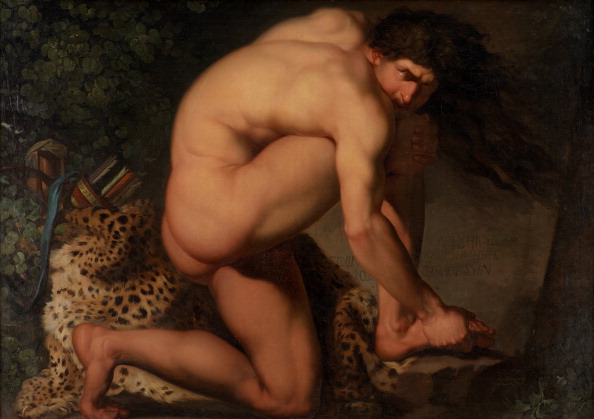
The Greek myth of Philoctetes tells of a man who suffered a terrible injury, and as a result of the wound he is left alone on a island for years. In his isolation he develops an uncanny skill with a bow and arrow, which proves crucial in later Greek battles. For many later interpreters, Philoctetes became the exemplar of the artist whose suffering is essential for his achievement. Edmund Wilson wrote an early study of the modernist movement covering great 20th-century writers, including James Joyce and Edith Wharton, and titled it The Wound and the Bow.
The idea that suffering refines art is ancient, but it is also modern. For example, the German novelist Thomas Mann wrote an essay attributing much of Dostoevsky’s insight to his epilepsy, and the play Equus is in part a meditation on whether “curing” someone will remove what is special about him.
Our afflictions are often inseparable from our gifts. Many teachers know this from watching children turn their struggles into strengths. There a number of successful dyslexics, for example, who attribute much of their success to their very disability.
When I speak to middle and high school students, they are keenly aware of their particular problems. For some each imperfection is excruciating, and the idea that they can turn their wounds into bows is unfathomable. Rather than encouragements to grapple with the difficulty and surmount it, they yearn for a cure. In an age when pain is a malady requiring relief, the philosophy of turning anguish into art is viewed as primitive, even cruel.
Yet there is no living without pain, and in retrospect people often look back on periods of struggle and difficulty as times of greatest growth. There is a threshold of course; some pain is too great to serve as anything helpful or motivating. But as a society, we are caught in a strange paradox. While we love to hear inspirational stories of people who have conquered difficulties, we seem at the same time to believe that every difficulty should be smoothed over, ignored or erased.
To be a person is to be unbalanced, struggling, wounded. So long as we see these things as deviations from what should be and not the natural condition of life, we will be less willing to do what the ancient bowman did, and learn the ways afflictions can yield mastery.
The modern world has brought untold blessings. Many of the everyday agonies that attended the ancient and medieval worlds—from headaches to toothaches, along with many more serious illnesses—have been mitigated or ended by the miracle of medicine. Many mental conditions have also been made less debilitating.
At the same time, we risk imagining that obstacles can be cured with a pill, that the genuine difficulties of life can be smoothed by a therapeutic regime.
Our burdens can be blessings. Moses began as a stutterer and learned to speak the word of God. We, too, can learn to speak through our infirmities to grow and be a model that will inspire others.
More Must-Reads from TIME
- Caitlin Clark Is TIME's 2024 Athlete of the Year
- Where Trump 2.0 Will Differ From 1.0
- Is Intermittent Fasting Good or Bad for You?
- The 100 Must-Read Books of 2024
- Column: If Optimism Feels Ridiculous Now, Try Hope
- The Future of Climate Action Is Trade Policy
- FX’s Say Nothing Is the Must-Watch Political Thriller of 2024
- Merle Bombardieri Is Helping People Make the Baby Decision
Contact us at letters@time.com